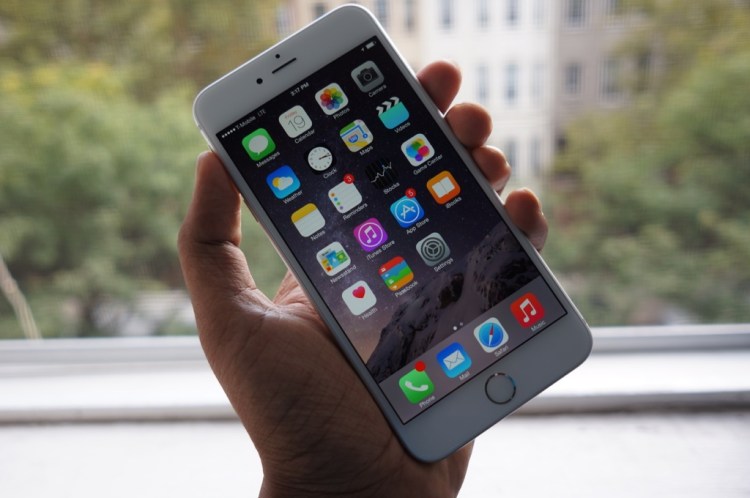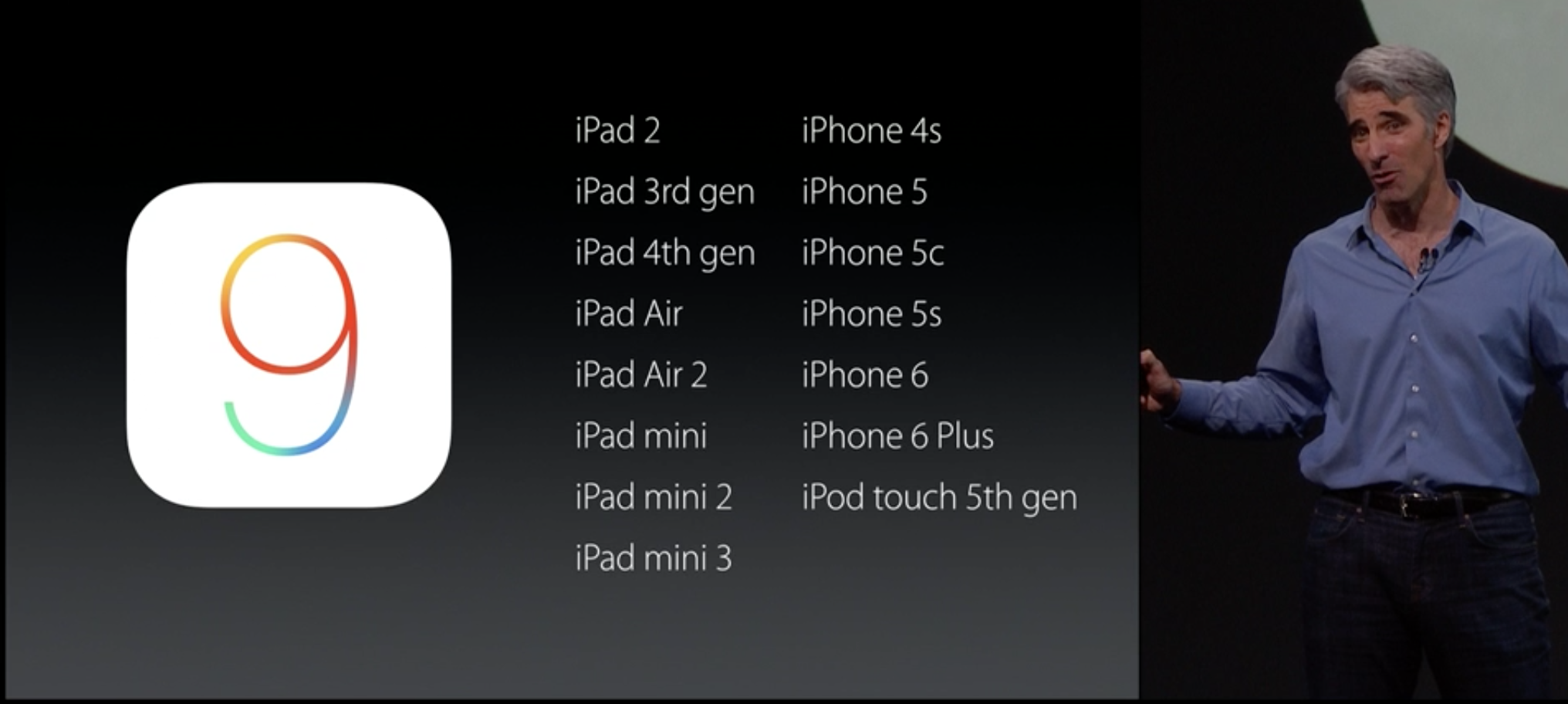With new iOS releases, Apple typically drops support for older devices. This time, however, all previous devices supported by iOS 8 will be supported by iOS 9, which will be offered as a free upgrade this fall.
Apple unveiled iOS 9 at its Worldwide Developers Conference (WWDC) event today in San Francisco. The first iOS 9 beta will be available to developers today, and a public beta will ship in July — betas of major versions were previously only available to developers.
As you can see in the slide below, the full list of supported devices for iOS 9 is as follows: iPad 2, iPad third-generation, iPad fourth-generation, iPad Air, iPad Air 2, iPad mini, iPad mini 2, iPad mini 3, iPhone 4s, iPhone 5, iPhone 5c, iPhone 5s, iPhone 6, iPhone 6 Plus, and iPod touch fifth-generation.
June 5th: The AI Audit in NYC
Join us next week in NYC to engage with top executive leaders, delving into strategies for auditing AI models to ensure fairness, optimal performance, and ethical compliance across diverse organizations. Secure your attendance for this exclusive invite-only event.
Available iOS 9 features will naturally vary based on your device. During Apple’s Q1 earnings call with investors, CEO Tim Cook revealed that the company sold its 1 billionth iOS device back in November. It’s not known exactly how many of those are on the list of devices supported by iOS 9, but Apple is clearly trying to maximize the number.
Apple today also announced that the amount of free space required to upgrade iOS has been significantly reduced. While iOS 8 required 4.6GB, iOS 9 will require just 1.3GB. One of the biggest reasons iOS users weren’t upgrading to iOS 8 was indeed the space requirements.
In March, Apple shared that iOS 8 adoption had hit 75 percent. Craig Federighi, Apple’s senior vice president of software engineering, said on stage today that iOS 8 is now at 83 percent adoption, leaving 17 percent for older versions.
While still very quick compared to other mobile operating systems, iOS 8 has had a much slower adoption rate than previous iOS versions. Pushing the beta to non-developers, offering iOS 9 on the same set of devices, and reducing the amount of free space required is an obvious attempt to address that.



